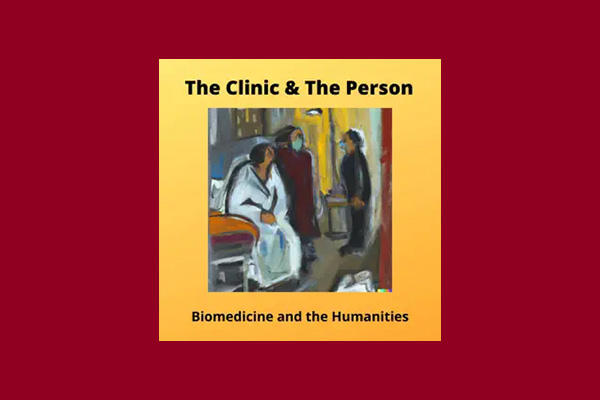
Author: Erin Wilson
Alumnus Dan Albrant, PharmD ‘87, was a licensed pharmacist for 30 years. At the age of 50, he decided to go to seminary. Now, he’s a pastor at two United Methodist churches in rural Virginia and co-host of the podcast The Clinic & The Person. In the years following his graduation from pharmacy school, Albrant worked at a small hospital in Alabama, created clinical pharmacy programs at Auburn University, taught pharmacy students, and took over the intensive care units at a large community hospital in northern Virginia before turning to independent hospital consulting.
“All the way along, I felt that there had to be a different narrative. So much of what I was doing in the ICU was all about suffering and death and the biomedical model just didn't answer that question,” Albrant said. “I sort of rekindled my spiritual journey at that point in time.”
Around the same time, Albrant and his wife, Dr. Lucinda Maine, adopted two boys and Albrant volunteered in a church program called Stephen Ministry, which provides one-on-one caregiving— a significant moment for his spirituality. In 2009, he started a small nonprofit to bridge organized health care and faith communities together in order to improve community health.
“What I found was that I had all of the science knowledge and all the experience, but I didn't have the right ability to speak to pastors, so I finally understood that I needed to go to seminary to get that language so that I could do what I think I was called to do— put the two parts of myself together into one and be this person who's working to improve communal health from both sides of the equation, taking care of the whole person,” Albrant said.
His longtime friend Russ Teagarden had also left the world of pharmacy, opting for medical humanities and ethics. Teagarden posed the idea of bringing their parallel experiences together.
“We both found an answer that we were looking for in the humanities and we think that there's something to offer to biomedical folks, to help them expand their horizons and their understanding of how to be with the people they diagnose as they go through their illnesses,” Albrant said.
The resulting product was The Clinic & The Person, which celebrated its two-year anniversary in September. The podcast explores how the humanities reflect people’s lived experience of disease. The two were recently joined by College of Pharmacy Professor Emeritus Paul Ranelli on the episode “Illness as Exile in the Greek Tragedy Philoctetes.” Ranelli was part of the team that organized a collaboration between the University of Minnesota’s Center for Orphan Drug Research and Theatre Arts and Dance Department to create a theatrical adaptation of Philoctetes’ tale highlighting rare diseases. Cohosting the podcast is another way Albrant means to improve communal health.
“If we open even one mind up to a different way of looking at how to care for people, how to approach illness in a new way, I think we've done a service,” Albrant said. “This is another way that I'm reaching out to try to improve communal health, improve the care of people, which is why I went into pharmacy in the first place.”
To Albrant, there are clear crossovers between pharmacy and spirituality. The two share ideas around suffering and death, embodying compassion, and accompanying people in their suffering without adopting their pathology, he said. Though he tried to accomplish that in the ICU, it didn’t translate in the way he’d like.
“How do we make biomedicine more humane by taking better care of the people— both the professionals and the people in the bed?” Albrant said. “I was reading an article on mental health care in the churches and a line in there that stuck with me said, ‘The church has always been God's hospital full of broken people on the mend.’ My move into pastoring was really about switching hospitals!”
Albrant believes his background in pharmacy and intensive care make him a better pastor. He doesn’t see his career trajectory as a drastic change, but rather a shift in his methodology of caregiving.
“I don't see it as two separate professions or two separate careers. I see it as a continuation, an evolution of my caring,” Albrant said. “I carry all that I was as a pharmacist with me.”